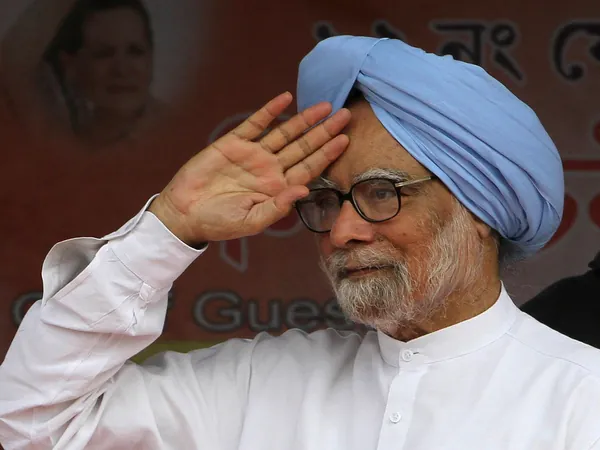
India Mourns the Loss of Former PM Manmohan Singh at 92: A Legacy of Economic Transformation
2024-12-26
Author: Benjamin
In a profound moment for India, former Prime Minister Manmohan Singh has passed away at the age of 92. His tenure from 2004 to 2014 marked a significant period in Indian history, characterized by substantial economic reform and social welfare initiatives.
Singh, an esteemed economist who previously served as the finance minister during a critical juncture in 1991, was known for his pivotal role in liberalizing India's economy. Just days before his death, he was hospitalized at the All India Institute of Medical Sciences in New Delhi due to health complications stemming from age-related conditions.
Singh's journey to the pinnacle of Indian politics is remarkable. Born in 1932 into a modest family in what is now Pakistan, he faced numerous challenges, including studying by candlelight. His academic prowess led him to prestigious institutions like Cambridge and Oxford, where he earned a doctorate focused on free trade's impact on India's economy.
Initially seen as a technocrat with no political aspirations, Singh's political career was sparked when he was appointed as the finance minister in 1991 by then-Prime Minister Narasimha Rao. His visionary policies during this period not only pulled India out of a severe economic crisis but also paved the way for globalization and deregulation of several sectors.
His elevation to the prime ministership came as a surprise, as Sonia Gandhi, leader of the Congress party, chose him to steer the government following their unexpected electoral victory. The decision was strategic in the wake of fears regarding the opposition to her Italian heritage.
Under Singh's leadership, India experienced unprecedented economic growth, and his government implemented a series of welfare programs aimed at uplifting the rural poor, including job creation initiatives. His administration also achieved a significant foreign policy milestone by securing a groundbreaking nuclear trade agreement with the United States in 2008, a deal that reshaped India's international relations and bolstered its energy sector.
However, Singh's administration faced many challenges, often being trapped in political deadlocks that hindered further reforms. Notably, the Congress party lost power to the Bharatiya Janata Party (BJP) under Narendra Modi in 2014, marking a dramatic shift in India's political landscape.
In his final years, Singh maintained a low profile, often reflecting on his time in office. In a poignant assertion just before leaving office, he believed that "history will be kinder to me than the contemporary media or, for that matter, the opposition parties in parliament."
The passing of Manmohan Singh leaves a significant void in Indian politics. Prime Minister Modi, who succeeded him, called Singh “one of India’s most distinguished leaders” and recognized his lasting impact on the country's economic policies. Singh is survived by his wife and three daughters, and his contributions to India's growth will be remembered for generations to come.
India, reflecting on the life of a man who committed his life to the public service, stands united in mourning but also in gratitude for Singh's extraordinary legacy—a story of resilience, intellect, and dedication.









 Brasil (PT)
Brasil (PT)
 Canada (EN)
Canada (EN)
 Chile (ES)
Chile (ES)
 España (ES)
España (ES)
 France (FR)
France (FR)
 Hong Kong (EN)
Hong Kong (EN)
 Italia (IT)
Italia (IT)
 日本 (JA)
日本 (JA)
 Magyarország (HU)
Magyarország (HU)
 Norge (NO)
Norge (NO)
 Polska (PL)
Polska (PL)
 Schweiz (DE)
Schweiz (DE)
 Singapore (EN)
Singapore (EN)
 Sverige (SV)
Sverige (SV)
 Suomi (FI)
Suomi (FI)
 Türkiye (TR)
Türkiye (TR)